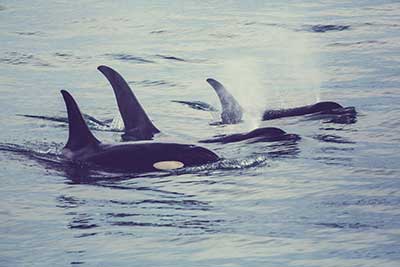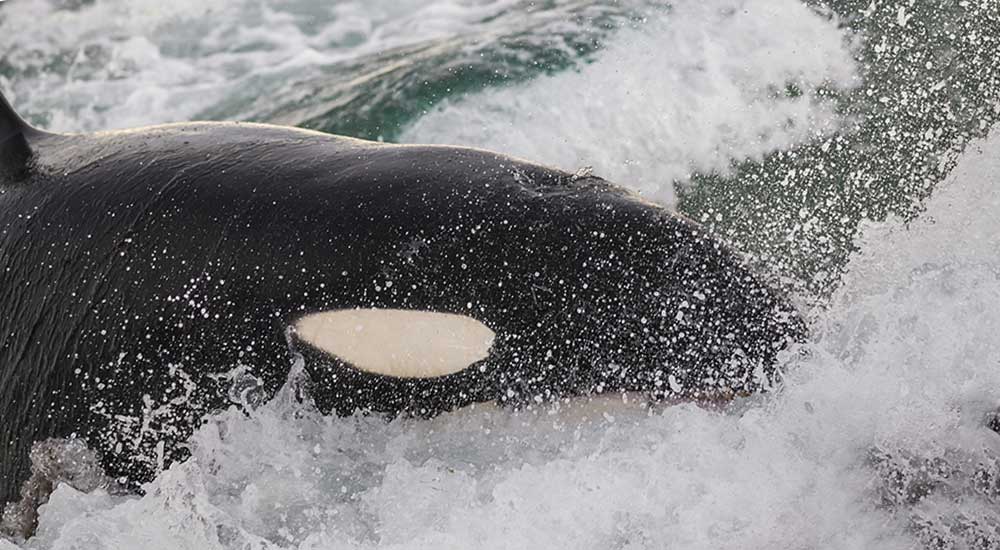There are many correlations that can be made between humanity and the animal kingdom. However, not many would make a connection between a woman and a whale, especially when it comes to experiencing menopause. Orcas, or killer whales, live in the Pacific Northwest in a J-pod, which is 24 whales dwelling together, and scientists have been studying the orca, and their J-pods, for more than four decades and from these studies may have found a connection when it comes to women’s older age and childbearing.
What’s the Connection to Humans?
Most animals can reproduce until they die. Even elephants that live for 60 – 70 years can still have babies till their passing. Researchers have discovered that there are three species that buck this trend: human beings, orcas, and short-finned pilot whales. A woman will experience “the change” anywhere from 45 – 55 years of age. A killer what will be unable produce any more children once they reach 30 – 40 years of age. So, why has nature created limitations on giving life, the answer may rest in more than just the ailing body.
Role Changes with Advanced Age
When a female no longer produces eggs, she can no longer bear children. This is true in both the human world and the animal kingdom. Human beings know that producing offspring at an advanced age can cause great medical difficulties. The body of a 65-year-old woman is not able to take the stress and strain of childbirth like someone in their 20’s.
However, after much research, some believe that this change is an evolutionary development that goes beyond an ailing body. They believe it stops a conflict between a mother and daughter. Whether whale or human, a correlation can be made to the authority figure emerging with age. A mother will no longer be a sexual threat to her daughter or her daughter’s offspring.
The University of Exeter was able to make much discovery in this area. They found that if a female whale could continue to breed into their later years, it would affect the survival of the entire pod. The older females shift their roles in the group for a reason. They teach the younger ones how to survive, hunt for food, and be good leaders. When a woman is beyond her childbearing years, she begins to take on a different role too. She also shows her daughter how to raise a child, gather food, and rule her family.
The Grandmother Hypothesis

The same theory also holds true for whales. In the wild, if a male orca’s mother passes, the odds of him joining her in the following 12 months greatly increases. In fact, it increases up to three times before he hits 30 years of age. If the orca is older than 30 years, his odds of passing her in the following year are 14 times higher.
Menopause Is Essential For Human and Animal
While of the aforementioned studies are interesting, it doesn’t really explain why the female killer whale doesn’t keep reproducing. The answer lies not in collaboration, but in the struggle. Creatures that raise their young in assemblies don’t have immeasurable resources. They only have so much food and attention to go around. If both mother and daughter are in direct competition to feed their children and shower them with attention, the entire circle of life is disrupted.
Amid humans, males tended to stay with their mothers while females move out to join a new family. As the daughter begins her new life, she’s primarily unrelated to those around her. She has no relatives to help, so the best way of passing genes to the next generation is for her to have children. As she produces offspring, she becomes gradually related to her new group. Sharing more genes with them continues the genetic legacy.
The Path Unwinding
The circle of life is both precious and beautiful. The body of both man and beast tires after some time. By allowing the younger to take care of reproduction, the older generation can step into a new and important role. Taking care of the family and making sure they are educated and ready for life on their own is no easy task. Nature can teach us so much about family, togetherness, and the importance of teaching children the importance of family values, even if life is different under the sea.





